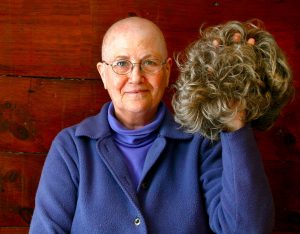Scientists have been finding a way to prevent hair loss after the painful process of cancer treatment, Chemotherapy (Chemo). Hair loss is one of the biggest feared side-effects. A recent study showed that 75% of female patients who had breast cancer feared the side effect of losing hair. Hair loss scored the highest in a Swedish nurse’s study that investigated the quality of life in patients who had breast cancer. With the help of Sung-Jan Lin, a scientist at National Taiwan University, a protein was made that could withstand the distressing effects of Chemotherapy.
There are a few other options for people receiving this treatment. Some will try to put on scalp-cooling caps to freeze the chemo drugs from entering the hair follicles. However, this process is expensive and only works for 50% of the people. The treatment could end up being longer than expected, and can cause mild to severe headaches and discomfort.
Lin describes that part of the problem is that we have such a limited knowledge of how Chemotherapy damages hair follicles.
In short, his team looked at a protein called p53. This protein functions to limit tumor growth, but also helps suppress hair growth (hair cells divide rapidly like tumor cells)
Studying P53, Lin found out that the protein was blocking a hair-promoting protein WNT3A. This stimulated his team to ask the following question. Is injecting WNT3A directly into the scalp while administering Chemo prevent hair loss?
The team decided to experiment with mice with a chemotherapy agent, and soon enough the results matched their hypothesis. One group of mice were injected with WNT3A soaked beads. And sure enough, that group sustained their hair. While the other group that was not given WNT3A loss all their hair.
Lin and his team are now working to adapt his studies on human patients. As stated by Lin it would be unsafe to inject WNT3A in bead form. As a result, they are working to create the protein in a gel or cream solution.
With this new hair saving option, the cancer treatment will seem less fearful for some patients. This treatment could be a big help for the future. Scientists are working to expand their knowledge on how to effectively provide treatment without endangering our human traits.
So after hearing all this, what do you feel about this new idea? Will the “power of proteins” eliminate other side effects provided by Chemotherapy? If so, what kinds? Let me know in the comments below.
Photo link and photographer:
www.flickr.com/photos/calliope/6025359063
Liz West



Leave a Reply